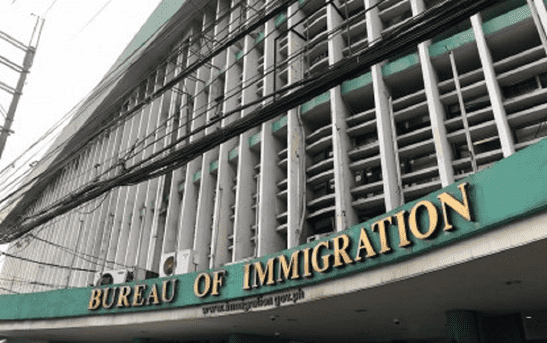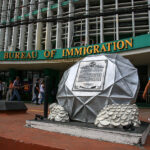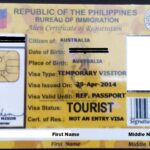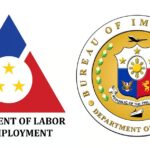Foreigners planning to visit, work, or live in the Philippines must understand and comply with its immigration laws. They should know the entry requirements for the Philippines, what they are allowed to do, and how to maintain legal status during their stay. Read more to discover the primary immigration rules you should know and how to avoid getting into trouble with government authorities.
Rule 1: Obtain the Right Visa or Authorized Stay
Securing the appropriate visa that fits your purpose and intended length of stay. Tourist visas (9(a)) usually allow stays of up to 30 days initially but prohibit work, business, or investment activities like soliciting funds or trading securities. For such activities, you need an investor or work visa.
- Verify visa conditions: Ensure your visa matches your intended activities to avoid violations.
- Apply early: Submit applications to the Bureau of Immigration (BI) or relevant agencies like the SEC for investment permits.
Unauthorized activities, like investing without an SIRV, can lead to fines, deportation, or blacklisting. Always confirm your visa aligns with your plans.
Rule 2: Follow the Conditions of Your Visa
The Philippine Immigration Act of 1940, amended over time, governs foreign stays. Managed by the BI, these laws define visa conditions and penalties for violations.
- Know your visa limits: Each visa type (tourist, work, resident) has specific rules on duration and permitted activities.
- Stay updated: Check the BI’s official website for policy changes to avoid unintentional violations.
- Avoid unauthorized activities: Engaging in employment or investing without proper permits risks severe penalties.
Rule 3: Register with the Bureau of Immigration
Foreigners staying over 59 days must register with the BI and obtain an Alien Certificate of Registration Identity Card (ACR I-Card). This biometric ID tracks your immigration status.
- Required documents: Valid passport, visa, and application form.
- Where to apply: BI offices or authorized service centers.
- Renewal: Annually, with fees varying (check BI’s website).
- Consequence of non-registration: Fines or visa extension issues.
You typically apply for an ACR I-Card when granted a long-term visa that allows you to stay beyond 59 days.
Rule 4: Make Mandatory Reports to the Bureau of Immigration
Foreigners with long-term visas, like the 9(g) work visa, must submit an Annual Report to the Bureau of Immigration (BI) by January 31 each year. The report confirms your presence in the country and visa compliance.
- How to report: Use the BI’s e-services portal or visit a BI office with your ACR I-Card, passport, and form.
- Fees: Pay a small processing fee.
- Penalties: Missing the deadline incurs a fine, plus potential visa or exit clearance issues.
- Tips: Set calendar reminders, keep records, and check BI updates.
Rule 5: Comply with Visa Renewal and Extension Processes
Extending your stay, such as with a tourist visa (which can be renewed up to 36 months), requires timely applications to the BI.
- Documents needed: Passport (valid for 6+ months), application form, and fees.
- Timing: Apply at least two weeks before visa expiry to avoid fines.
- Keep records: Save digital and physical copies of all submissions for reference.
Rule 6: Get Permits for Work Authorization
Those who wish to work in the Philippines will need an Alien Employment Permit (AEP) from the Department of Labor and Employment (DOLE) and a work visa (e.g., 9(g) visa).
- AEP requirement: Proves that no qualified Filipino can fill the role.
- Employer Assistance: Employers are largely responsible for obtaining their employees’ permits and visas.
- Risk of non-compliance: Unauthorized work can lead to deportation.
Rule 7: Exit Clearance and Departure Regulations
Long-term visa holders and ACR I-Card holders need an Exit Clearance Certificate (ECC) before leaving the Philippines.
- Purpose: Confirms no pending immigration violations.
- Requirements: Valid passport, ACR I-Card, and fees.
- Processing time: Apply a few days early to avoid travel delays.
- Exemptions: Certain visas in the Philippines do not require an Exit Clearance Certificate (ECC) for departure.
Rule 8: Follow Local Laws and Stay on Good Behavior
Foreigners in the Philippines must adhere to local laws to maintain immigration compliance and avoid trouble. Breaking laws, even minor ones, can jeopardize your visa status and lead to fines, detention, or deportation.
- Obey Philippine Laws: Respect regulations on public behavior, traffic, and prohibited activities like illegal gambling or drug use.
- Avoid Political Involvement: Foreigners are barred from participating in protests or political activities under most visa types.
- Stay Respectful: Maintain good conduct to avoid complaints that could trigger BI investigations.
- Consequences: Legal violations may result in visa cancellation or blacklisting.
Always carry your passport or ACR I-Card for identification. Staying respectful and law-abiding ensures a smooth stay in the Philippines.
Final Thoughts
Staying compliant with Philippine immigration laws ensures you enjoy your time in the Philippines without legal issues. Always secure the right visa, make timely reports, and follow local laws to avoid penalties like fines or deportation. Work Visa Philippines can help ensure your visa application and compliance requirements are complete, accurate, and submitted on time.
Do You Need Assistance with Your Visa Application and Other Immigration Requirements?
Let Work Visa Philippines guide you through the process. Our experienced lawyers help clients obtain a suitable visa, the proper permits, and other requirements from the appropriate government agencies. We’ll ensure your legal documents are complete so you can focus on enjoying your stay in the Philippines.
Reach out today and we’ll guide you every step of the way.
- Contact Us Here
- Fill Out the Form Below
- Call us at +63 (02) 8540-9623





